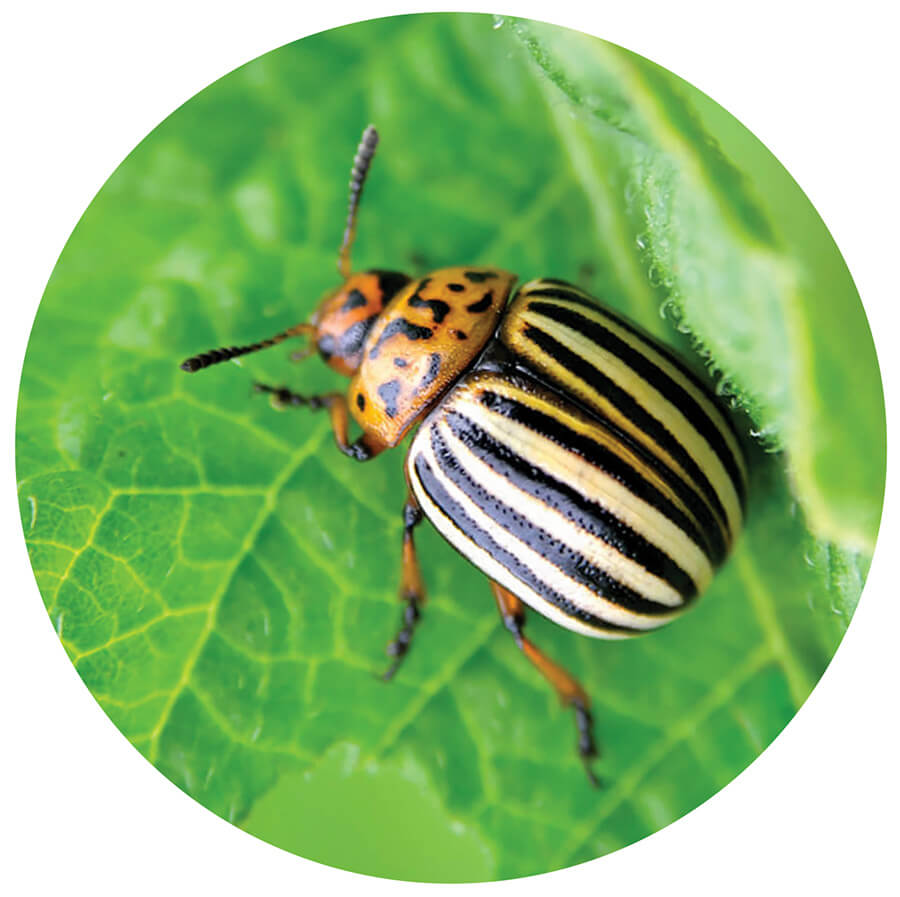Managing cannibals
Colorado potato beetles can decimate spud crops by devouring the plants’ foliage. That’s a big problem for farmers in Maine, where the 2016 potato harvest was valued at more than $142 million.
There’s more unsettling news: Each female Colorado potato beetle can lay about 600 eggs in a growing season. And the species — Leptinotarsa decemlineata — easily develops resistance to pesticides.
What might slow their devastation of potato crops? Perhaps cannibalism, say University of Maine researchers.
UMaine scientists Everett Booth, Andrei Alyokhin and Sarah Pinatti observed that in a laboratory, Colorado potato beetles faced with starvation, crowding and no opportunity to disperse ate beetle eggs, young beetles, injured beetles and other adults.
Even when Colorado potato beetles were given a choice between other adult beetles and mealworms, they ate their own species, says Alyokhin, an entomologist and director of the School of Biology and Ecology.
The UMaine scientists say farmers could try to protect their potato crop by utilizing agricultural practices — including crop rotations and push-pull strategies — to create field conditions that favor Colorado potato beetle cannibalism.

